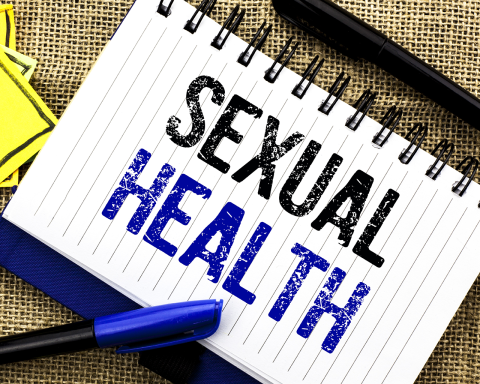Sexual health is an essential aspect of overall well-being. Yet it is often surrounded by stigma, misconceptions, and a lack of open dialogue. As an integral part of human life, sexual health encircles not only the physical aspects of sexual activity but also emotional, mental, and social dimensions. In that blog, we will take a look at what sexual health truly means, its importance, common challenges, and how individuals can nurture a healthy sexual life.
Clarify Sexual Health Among People
Sexual health is a state of physical, emotional, mental, and social well-being about sexuality. It goes beyond the absence of disease or defect and involves a positive and respectful approach to sexuality and sexual relationships. Sexual health requires a safe and supportive environment where individuals can reveal their sexuality freely, without harassment, distinction, or violence.
This holistic approach to sexual health emphasizes that it is not just about preventing sexually transmitted infections sexually transmitted diseases (STIs) or unwanted pregnancies, but about Promoting a positive, consensual, and fulfilling sexual life. Sexual health also involves understanding one’s body, desires, and boundaries, as well as respecting those of others.
Importance of Sexual Health
Sexual health is essential to overall health and quality of life. It affects various aspects of well-being, including self-esteem, emotional intimacy, and relationships. Healthy sexual experiences can enhance emotional bonds, reduce stress, and contribute to a sense of happiness and completion.
On the other hand, neglecting sexual health can lead to a range of issues, including physical health problems, emotional distress, and relationship difficulties. Poor sexual health is associated with increased risks of sexually transmitted diseases, sexual defects, and negative psychological effects such as anxiety, depression, and low self-esteem.
Furthermore, sexual health plays a critical role in reproductive health. Understanding one’s body, contraception, and reproductive rights empowers individuals to make informed decisions about their sexual and reproductive lives.
Three Challenges in Sexual Health
Lack of Education and Awareness
One of the main challenges in sexual health is the lack of comprehensive sex education. Many people grow up with limited or wrong information about sexuality, often derived from myths, cultural taboos, or incomplete education systems. This gap in knowledge can lead to unsafe sexual practices, unwanted pregnancies, and the spread of sexually transmitted diseases (STIs).

Comprehensive sex education, which includes information about consent, relationships, contraception, and sexually transmitted diseases (STIs), is crucial for empowering individuals to make informed decisions about their sexual health. It also promotes healthy attitudes towards sex, reducing stigma and stimulating a more open, respectful dialogue about sexuality.
Stigma and Discrimination
Stigma and discrimination related to sexual health are general issues that affect people of all genders and sexual exposure. Individuals may face judgment or exclusion for their sexual behaviors, preferences, or identities. This stigma can prevent people from seeking the sexual health care they need, leading to untreated health issues and psychological pain.
For example, people living with Human Immunodeficiency Virus/Acquired Immunodeficiency Syndrome often experience significant stigma, which can caution them from accessing treatment or disclosing their status. Similarly, lesbian, gay, bisexual, transgender, and queer+ individuals may face discrimination in healthcare settings, making it difficult for them to receive proper and respectful care.
Access to Sexual Health Services
Access to Sexual Health Services Access to sexual health services remains a large obstacle for many, especially those within underserved communities. Socioeconomic status, geographic location, and cultural norms stand in the way of one’s access to contraception, sexually transmitted disease testing, or sexual health education. Inaccessibility results in higher unintended pregnancies, STIs, and complications of sexual health.
Improvement of sexual health services implies an essential constituent in the lives of all that access to resources and support are available for maintaining sexual health. These services should be affordable, culturally responsive, and more accessible for all people, regardless of backgrounds or identities.
Sexual Dysfunction and Mental Health
Sexual dysfunction, such as erectile dysfunction, low libido, or painful intercourse. It is a common issue that can affect anyone, regardless of age or gender. These problems often have both physical and psychological components, and they can significantly impact a person’s quality of life and relationships.
Mental health is closely linked to sexual health. Stress, anxiety, depression, and trauma can all negatively affect sexual desire, performance, and satisfaction. Conversely, sexual health problems can contribute to mental health issues, creating a cycle of distress that can be challenging to break.
The Four Nurturing Sexual Health are:
Open Communication
Open and honest communication is fundamental to maintaining sexual health. Whether with a partner, health care provider, or oneself, discussing sexual needs, concerns, and boundaries . That is essential for ensuring that sexual experiences are safe, consensual, and fulfilling.

In relationships, talking about sexual desires, preferences, and concerns can strengthen emotional confidentiality and help partners navigate challenges together. Seeking professional guidance, such as counseling or therapy, can also be beneficial for addressing sexual health issues that are difficult to resolve alone.
Education and Self-Awareness
Continuous education about sexual health is crucial for making informed decisions. This includes understanding the basics of human sexuality, safe sex practices, contraception, and the signs and symptoms of STIs. Being aware of one’s body, sexual response, and preferences can also help individuals lead a more satisfying sexual life.
Self-awareness involves recognizing and respecting one’s boundaries, desires, and sexual orientation. It also means being mindful of emotional and physical health and seeking help when needed. Self-care practices, such as regular exercise, stress management, and a healthy diet, can also positively impact sexual health. Sexual rights are a fundamental component of sexual health. Every individual has the right to access sexual health services, to choose their partners freely, and to engage in consensual sexual relationships.
Accessing Health Services
Regular sexual health check-ups are vital for preventing and managing issues such as STIs, sexual dysfunction, and reproductive health concerns. Accessing services like STI testing, contraception, and sexual health counseling should be seen as a normal part of maintaining overall health.
It’s also important to seek out healthcare providers who are knowledgeable, non-judgmental, and respectful of all aspects of sexual health. This ensures that individuals receive appropriate care and feel comfortable discussing their sexual health openly.
Respecting Consent and Boundaries
Respecting consent is a cornerstone of sexual health. Consent involves clear, voluntary, and enthusiastic agreement to engage in sexual activity. Understanding and respecting each other’s boundaries is crucial for creating a safe and positive sexual experience.
Education about consent should be an ongoing process, emphasizing that consent can be withdrawn at any time and that all parties involved have the right to set their own boundaries. Fostering a culture of consent contributes to healthier, more respectful relationships and reduces the risk of sexual violence.
Embracing Sexual Health
Sexual health is a dynamic and essential component of overall well-being. By fostering open communication, seeking education, accessing health services, and respecting consent, individuals can nurture their sexual health and enjoy fulfilling, respectful, and safe sexual experiences.
Overcoming challenges such as stigma, lack of education, and limited access to services requires a collective effort to promote a more inclusive and informed approach to sexual health. Embracing sexual health as a positive, integral part of life allows individuals to build stronger relationships, improve their mental and physical health, and achieve a higher quality of life.
It also requires a commitment to promoting sexual rights, eliminating stigma, and overcoming the barriers that prevent people from achieving optimal sexual health. As society continues to evolve, so too must our approaches to sexual health, ensuring that they are inclusive, comprehensive, and responsive to the needs of all individuals.

